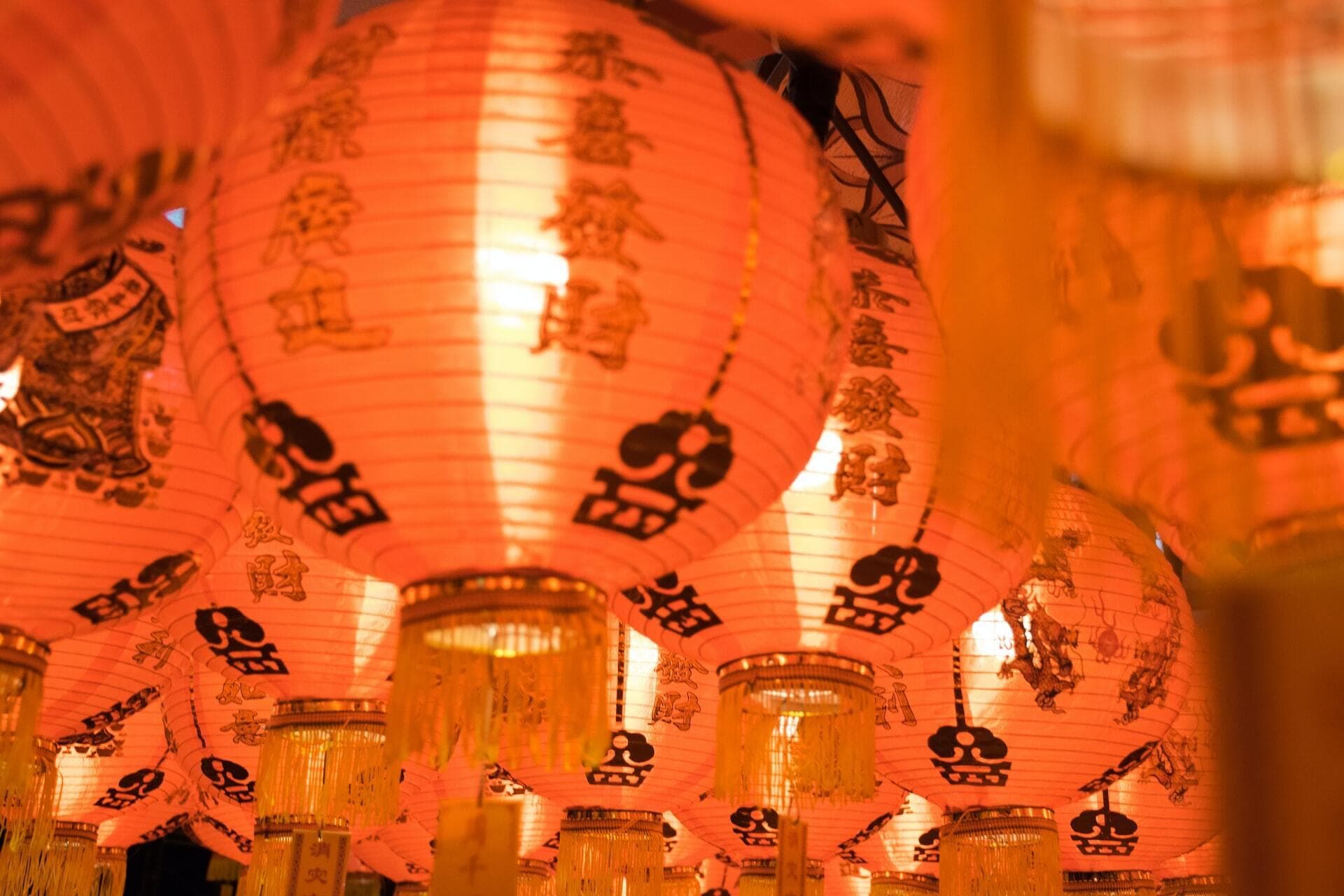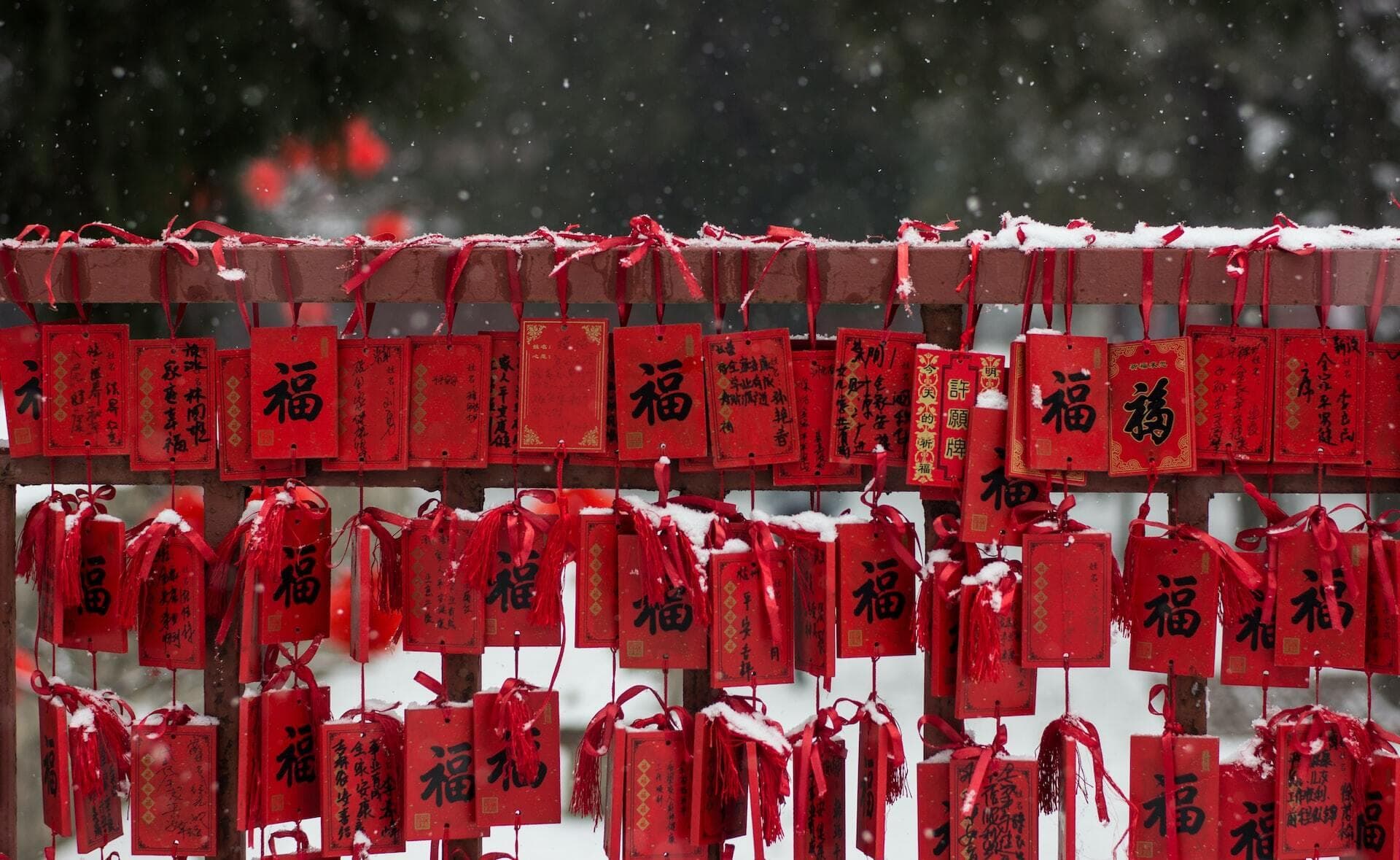There are a lot of holidays and special occasions that Chinese people celebrate, and situations where you offer well-wishes. Learning common phrases for these different occasions is useful and important, and it can bring you closer to Chinese culture and the lifestyles of Chinese people. Here we teach you some common phrases for these scenarios that will come in handy!
"Congratulations" for Social Situations

Social situations like wishing someone a happy marriage or a happy birthday obviously carry their own special greetings. Today, we're going to take a look at the various ways to congratulate people for special occasions in Chinese.
The most basic and common way of saying congratulations is well... congratulations. To say this in Chinese, you say 恭喜 (gōng xǐ) or 恭喜你 (gōng xǐ nǐ). You can use them to congratulate someone on a variety of occasions, such as when they graduate from school, get a new job, or get married.
If you're congratulating someone on a significant achievement, you can also say 祝贺你 (zhù hè nǐ). Both 恭喜 and 祝贺 are congratulatory verbs and are often used interchangeably. Pay attention to the fact that 恭喜 can be used by itself, and would be translated as "congratulations". But for 祝贺, it is only used as a verb, translated as "congratulate", and is typically followed by an object like 你/你们.
There is also a 成语 (chéng yǔ; idiom): 可喜可贺 (kě xǐ kě hè), this is an adjective meaning something that's worthy of congratulations and happiness. Here is an example sentence:
你家儿子考上了梦想的大学,真是可喜可贺啊!
Your son has been admitted to the university of his dreams, what a joy!
In short, no matter what the occasion, saying 恭喜 (gōng xǐ) is always a nice way to show that you're happy for someone's good news!
Celebratory Phrases for Chinese Holidays

For holiday wishes, on the other hand, we usually start with happy or merry, and in Chinese, this would be 快乐 (kuài lè). The most important holiday (and best) is of course Chinese/Lunar New Year, 春节 (chūn jié, Spring Festival). To say "Happy New Year" in Chinese, you can say 新年快乐 (xīn nián kuài lè). The direct translation of this Chinese phrase is "New Year Happy", which is the opposite order we use in English. Other common phrases for New Year greeting also include:
| Happy Chinese New Year | Happy Spring Festival |
| 新年好 (xīn nián hǎo) | 春节好 (chūn jié hǎo) |
| 过年好 (guò nián hǎo) | 春节快乐 (chūn jié kuài lè) |
| 新春快乐 (xīn chūn kuài lè) |
As a tradition, Chinese New Year is celebrated with 红包 (hóng bāo) - red envelopes containing money that are given to children. During the Chinese New Year celebration, which lasts about 1-2 weeks, people will play New Year songs 新年歌 (xīn nián gē), just like the Christmas songs! In these New Year songs, you will often come across common celebratory phrases such as:
大吉大利 (dà jí dà lì) - Wish you great fortune and luck
心想事成 (xīn xiǎng shì chéng) - May all your wishes come true
万事如意 (wàn shì rú yì) - May all go well with you
财源滚滚 (cái yuán gǔn gǔn) - May good fortune/money come to you
恭喜发财 (gōng xǐ fā cái) - Wish you prosperity and wealth
Here's an example by the BEST Chinese New Year Song artist (I'm sure everyone will agree), Nick Chung/钟盛忠:
https://www.youtube.com/watch?v=3fxgS8izu7g
It is very common to wish people good fortune/wealth for Chinese New Year, and New Year songs often include phrases about good luck (好运/hǎo yùn), a blessing of fortune/wealth (发财/fā cái) and references to the traditional Chinese God of Wealth (财神/cái shén).
In addition to the Chinese New Year, Chinese people celebrate many holidays throughout the year. Here are some common phrases that are used to wish others a happy holiday:
元宵节快乐 (yuán xiāo jié kuài lè) - Happy Lantern Festival
清明节安康 (qīng míng jié ān kāng) - Wish you a good Tomb-Sweeping Day
端午节快乐 (duān wǔ jié kuài lè) - Happy Dragon Boat Festival
中秋节快乐 (zhōng qiū jié kuài lè) - Happy Mid-Autumn Festival
You may have noticed that 快乐 is pretty much used for all holidays, except for 清明节 (qīng míng jié, Ching Ming Festival, or Tomb-Sweeping Day). As indicated by its name, it is a traditional holiday for Chinese people to visit their ancestral tombs to sweep them. So saying 快乐/happy doesn't seem to fit the theme very well. Therefore, people would use 安康 (ān kāng) instead, which means "good health" or well-being.
Other Phrases for Good Wishes

When it comes to wishing someone well, the Chinese language has a lot to offer. Here are some of the most commonly used phrases for saying good wishes in Chinese:
加油! (jiā yóu) - Good luck / Cheer up / Way to go / You can do it / Hang in there!
祝你好运! (zhù nǐ hǎo yùn!) - Wish you good luck!
祝你早日康复! (zhù nǐ zǎorì kāngfu!) - Wish you a speedy recovery!
祝你身体健康!(zhù nǐ shēn tǐ jiàn kāng) - Wish you good health!
祝你一帆风顺!(zhù nǐ yī fān fēng shùn!) - Wish everything goes well with you!/ Wish you all the best!
祝你一路顺风!(zhù nǐ yīl ù shùn fēng) - Wish you have a smooth trip!
It is common to use 祝你 (zhù nǐ, wish you) followed by a wish for their future, but sometimes 祝你 can be skipped and your wish will still come across. That is to say, you can just use 一路顺风,一帆风顺 and so on by themselves.